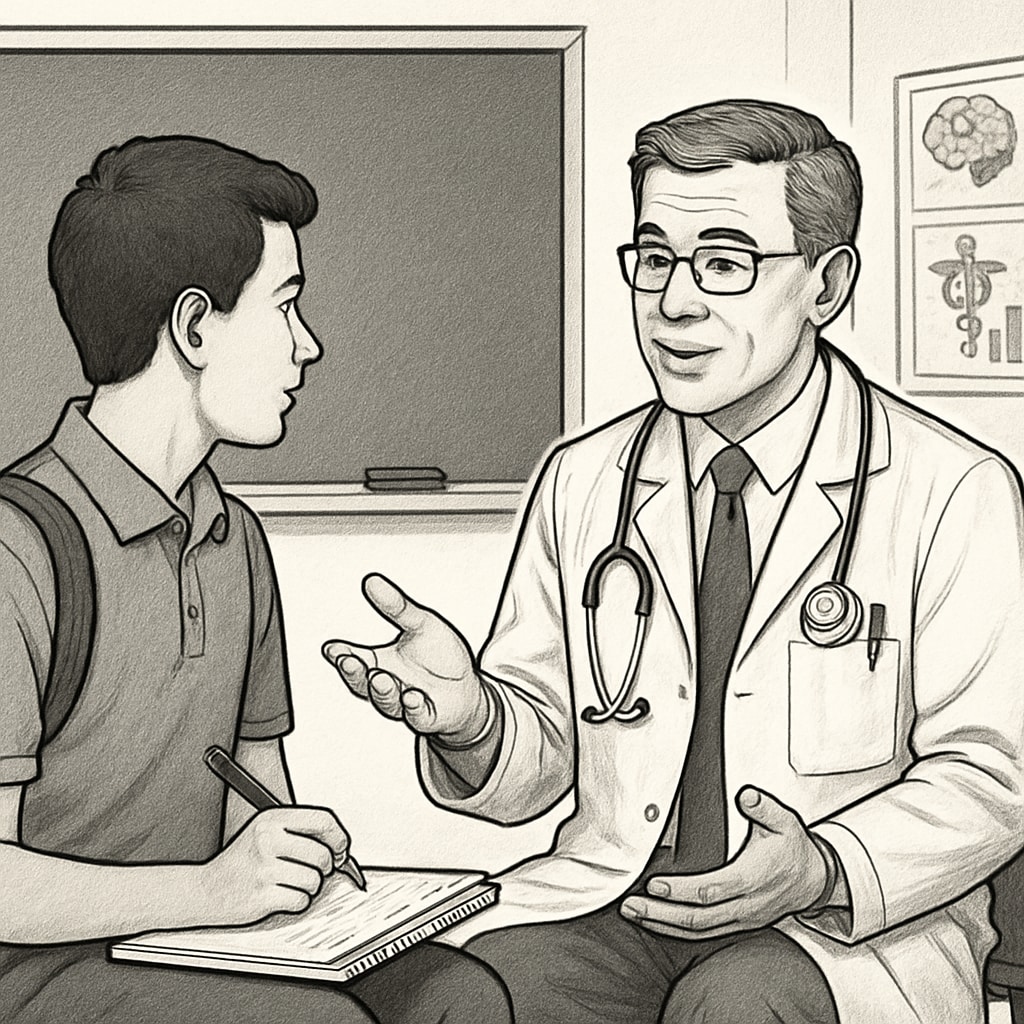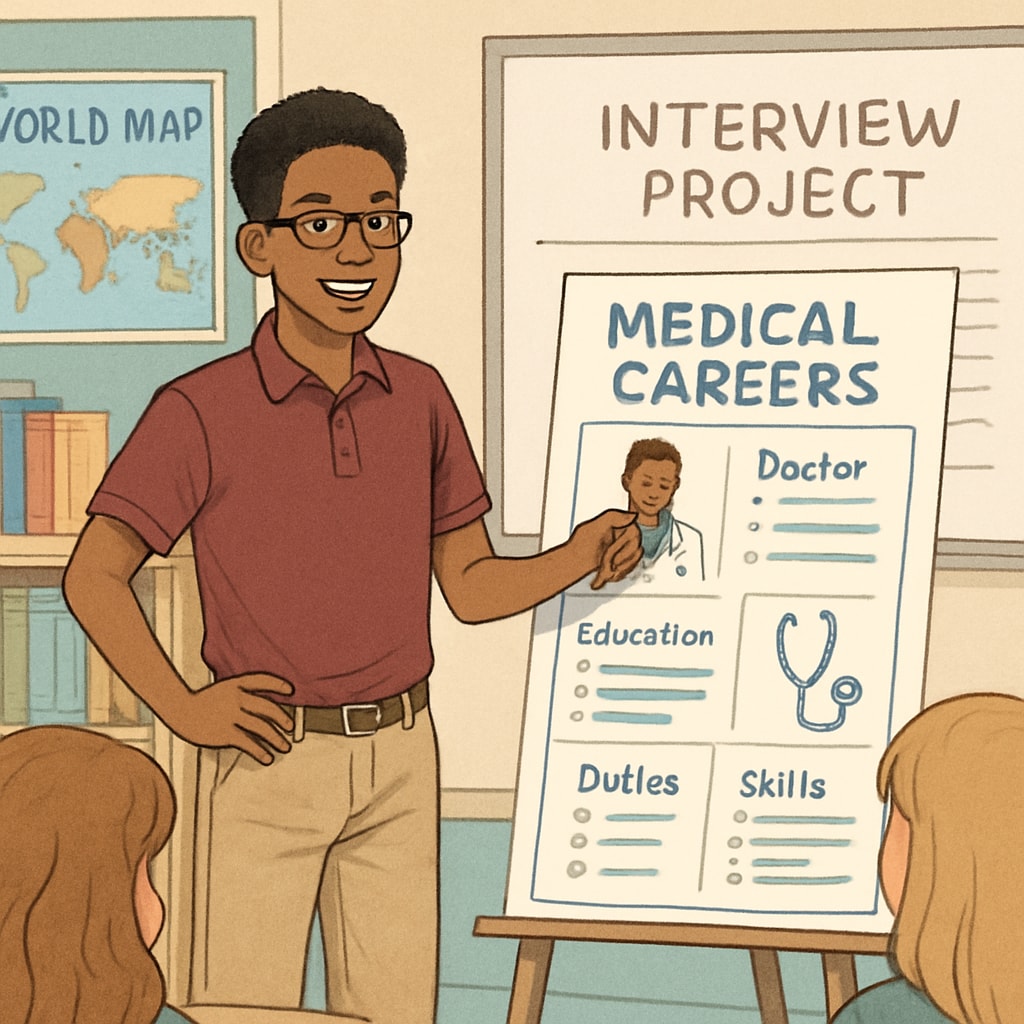Incorporating “medical careers, school projects, and doctor interviews” into K12 education can spark students’ interest in healthcare and provide valuable insights into the medical profession. By engaging students in structured interview projects with healthcare professionals, schools can foster career awareness and improve decision-making skills. This article delves into the benefits of such projects, offers a step-by-step framework for implementation, and provides guidance on facilitating meaningful interactions between students and medical professionals.
The Value of Medical Career Exploration in Schools
Career exploration is a pivotal part of K12 education. It equips students with the knowledge and skills to make informed decisions about their future. In the context of medical careers, early exposure to the profession can help students understand the commitment and challenges involved. Interviewing doctors allows students to learn about various medical specialties, the importance of empathy in patient care, and the rigorous training required to become a healthcare professional.
For example, students might discover the diverse roles within the medical field, ranging from general practitioners to surgeons or researchers. This knowledge not only broadens their horizons but also aligns with critical thinking and communication skills emphasized in modern curricula.

Designing Effective School Projects for Doctor Interviews
To maximize the educational impact, schools should carefully design these projects. Here is a step-by-step framework to ensure success:
- Define Learning Objectives: Determine what students should gain, such as understanding medical specialties, daily routines, or the educational path to becoming a doctor.
- Select Participants: Engage local medical professionals who can provide diverse perspectives. Consider reaching out to hospitals, clinics, or professional associations.
- Prepare Students: Equip students with interview techniques, including formulating open-ended questions and practicing active listening.
- Facilitate the Interviews: Arrange for in-person or virtual meetings, ensuring a professional and respectful atmosphere.
- Reflect and Share: Encourage students to summarize their findings through presentations or essays, promoting deeper engagement and peer learning.
By following these steps, schools can create a structured environment where students feel empowered to ask meaningful questions and gain firsthand knowledge about the medical profession.
Guiding Students in Professional Interactions
One of the most critical aspects of these projects is teaching students how to interact professionally with healthcare providers. Here are some tips:
- Research First: Encourage students to learn about the doctor’s specialty beforehand to ask informed questions.
- Practice Professionalism: Stress the importance of punctuality, respect, and gratitude during the interview process.
- Encourage Curiosity: Students should feel free to ask questions about the challenges and rewards of a medical career, fostering a genuine connection with the interviewee.
These interactions not only build students’ interpersonal skills but also leave a positive impression on the medical professionals, potentially opening doors for future mentorship opportunities.

Long-Term Benefits of Medical Career Projects
The impact of these projects extends far beyond the classroom. For students, they can spark a lifelong interest in medicine or healthcare-related fields. Even for those who choose different paths, the skills gained—research, communication, and critical thinking—are universally beneficial. Schools also benefit by strengthening their ties to the community and enhancing their career readiness programs.
According to a recent Britannica article on medical education, early exposure to healthcare careers can significantly influence students’ career choices. Similarly, a Wikipedia entry on career counseling highlights the importance of practical, hands-on experiences in shaping career aspirations. Such projects serve as a bridge between academic learning and real-world application.
In conclusion, integrating “medical careers, school projects, and doctor interviews” into K12 education offers a dynamic way to inspire the next generation of healthcare professionals. By designing thoughtful and engaging programs, educators can equip students with the tools they need to explore their passions and make informed career decisions.
Readability guidance: Keep paragraphs concise and use lists to summarize key points. Maintain an active voice and include transitional phrases to enhance flow. Ensure images align with the text, contributing to a comprehensive understanding of the topic.


